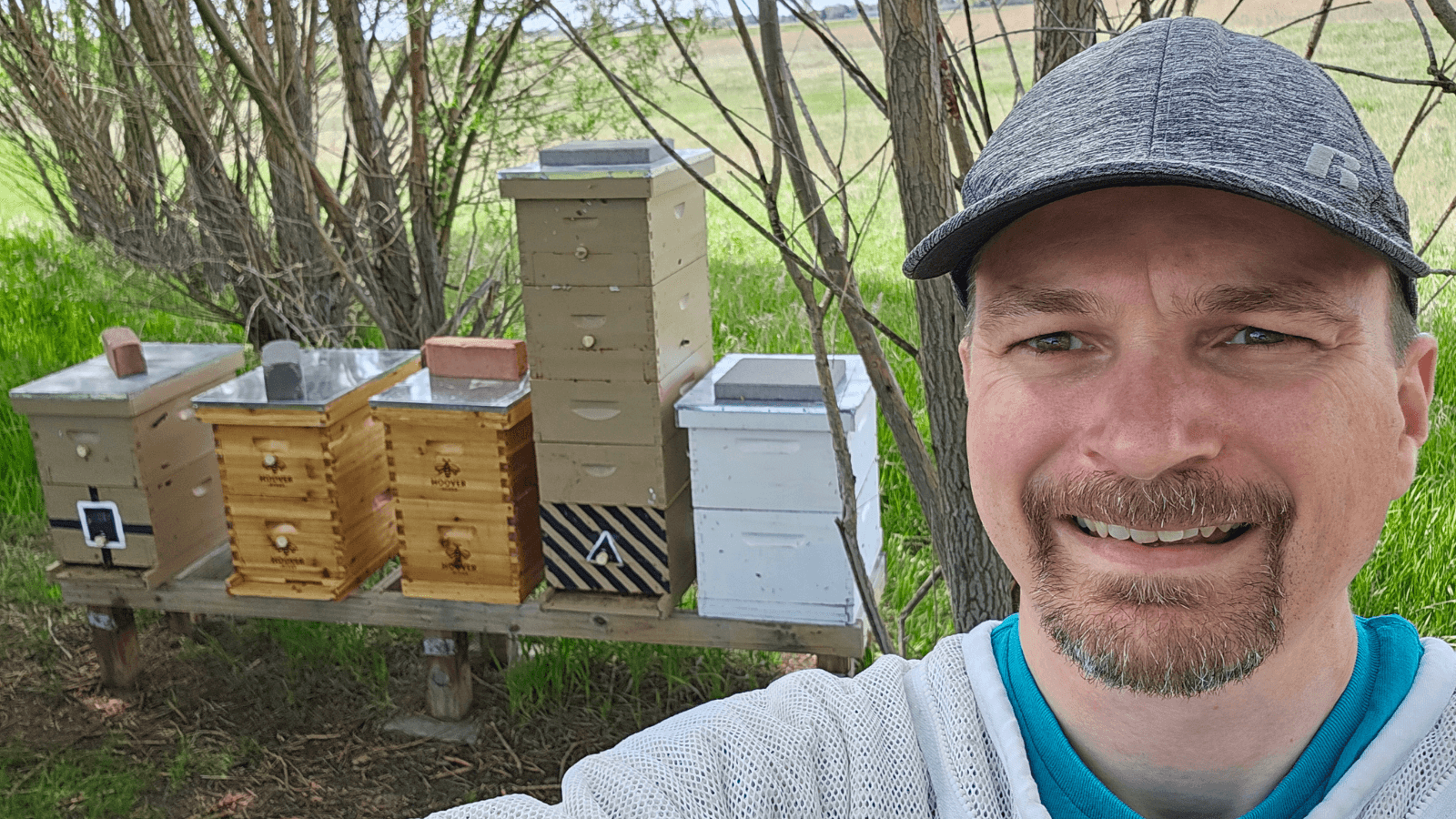
I’ve always been interested in group intelligence in creation: a flock of birds flying in formation to a destination with no map, a pride of lions hunting in a pack and together finding weaknesses in their prey, penguins that rotate their huddle in order to endure the arctic chill. My mother was likely frustrated that as a child I was often more interested in tracing the trail of ants back to their point of entry than I was in exterminating them.
My interest in honey bees began in grade school after watching a NOVA documentary called “Bees: Tales from the Hive”. I was (still am) fascinated by what a group of thousands of bug-brained insects could accomplish by working together. The documentary showed just how intelligent they can be, communicating by dance the location of sources of nectar or the site of a potential new home for a population of bees on the verge of swarming. Probably most interesting of all was the queen bee: how there can be only one, how they will fight to the death if there is more than one present, and how the temperament and activity of this singular bee shapes the life of the rest of the colony.
As a pastor, I regularly see lines of comparison between the colony and congregation. Not unlike the queen, the message that lives at the center of the congregation shapes the temperament and the life of the rest of the congregation. The Apostle Paul succinctly described that message as, “Jesus was crucified and raised from the dead for you” (1 Corinthians Ch.1). Often other messages contend to become the central message of the congregation but not unlike a queen bee, the words of Jesus Christ alone sting to death anything else that would threaten to try and replace them as the heart of the congregation.
Paul also wrote, “It is for freedom that Christ has set us free.” (Galatians 5:1). All too much of our lives are spent trying to stave off the inevitability of death, but Jesus’ resurrection flips that whole way of living upside down. You might have heard these words from scripture at a funeral, “’Where, O death, is your victory? Where, O death, is your sting?’ The sting of death is sin, and the power of sin is the law. But thanks be to God, who gives us the victory through our Lord Jesus Christ.” (1 Cor. 15:55-57). Honey bee workers sting one time and then die as their stinging organ is torn out of their body and often remains embedded in the flesh of their target. To borrow Paul’s metaphor, Jesus has taken death’s sting on the cross. That means death’s stinger is all used up. Death isn’t the end for you and me anymore.
Like the busy honey bee, you and I are free to use up this whole life of ours taking care of creation, our family, our neighbors, our community, our hive – if you like, knowing that when this life is spent and death arrives, its final sting is gone. Death is not the end, but rather a pit stop on the way to resurrection. For just such freedom, Christ has set you free.
Brian Jack is a graduate of Luther Seminary and Associate Pastor for First Lutheran Church in Milford, IA. He has been in public ministry for 10 years, half of them as a beekeeper. His advice for first time beekeepers is “honey bees don’t survive alone and neither will you.” Find your local beekeeping association or a mentor – make friends, make memories, and maybe even make some honey.






